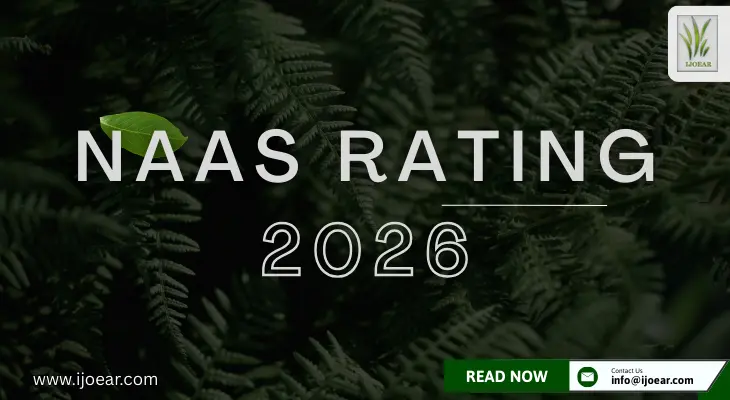
The NAAS Journal Rating 2026 is a key reference for researchers in agriculture and allied sciences. This guide explains the updated NAAS journal list, scoring criteria, rating scale, and author guidelines. It helps researchers select credible journals, avoid predatory publications, and align submissions with academic and institutional evaluation standards.
Read More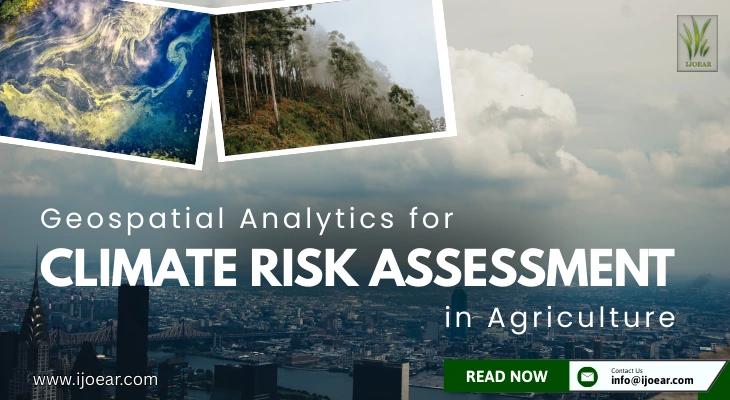
Geospatial analytics plays a vital role in assessing climate risks in agriculture by integrating GIS, remote sensing, and spatial modeling. This blog explores how climate data, satellite imagery, and predictive analytics support risk mapping, early warning systems, and climate-smart decision-making for resilient and sustainable agricultural systems.
Read More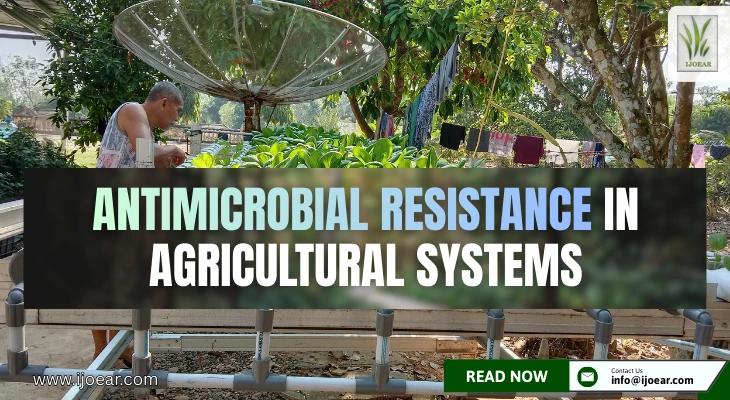
Antimicrobial resistance in agricultural systems poses a growing threat to food safety, public health, and environmental sustainability. This blog examines the drivers of AMR in crop and livestock production, pathways of resistance spread through food systems, and evidence-based management strategies aligned with One Health and sustainable agriculture principles.
Read More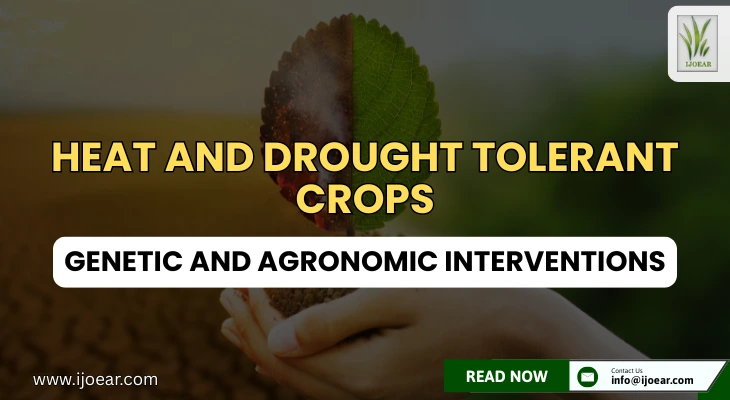
Rising temperatures and water scarcity threaten global food production. This blog examines genetic improvements and agronomic interventions that enhance heat and drought tolerance in crops, highlighting breeding strategies, molecular approaches, and field-level practices that support climate-resilient agriculture, yield stability, and long-term food security.
Read More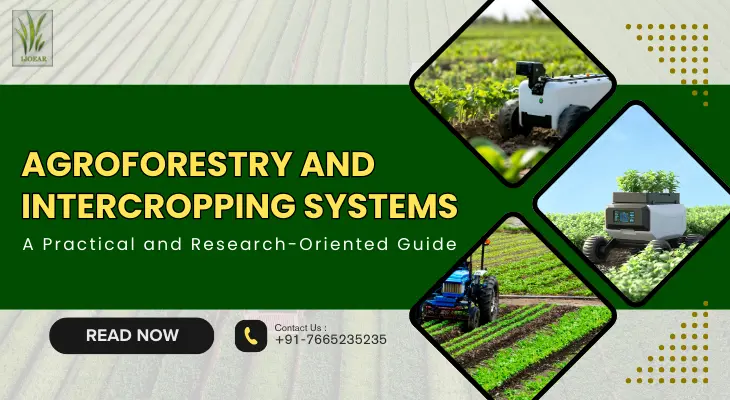
Agroforestry and intercropping systems combine trees and crops to enhance productivity, resilience, and ecological balance. This research-oriented guide examines practical designs, scientific evidence, and field applications that support sustainable agriculture, improved soil health, biodiversity conservation, and climate-smart farming practices across diverse agro-ecological regions.
Read More
The Water–Food–Energy Nexus reveals how sunlight supports the world’s most critical resources. This blog explores the interconnected pathways between water, food, and energy systems, highlighting challenges, innovations, and sustainable solutions needed to build climate-resilient, efficient, and future-ready global development frameworks.
Read More
This article critically examines whether agroecology can compete with conventional agricultural intensification in feeding a growing global population. Drawing on scientific evidence, real-world case studies, and policy perspectives, it compares productivity, resilience, environmental trade-offs, and socio-economic outcomes, highlighting ecological intensification as a practical and climate-resilient pathway forward.
Read More
Soil carbon sequestration plays a vital role in climate mitigation and sustainable agriculture. This blog explains how carbon is stored in soils, key measurement techniques, effective enhancement practices, and emerging research directions. It also highlights the growing PhD opportunities in soil carbon science, climate policy, and digital MRV technologies.
Read More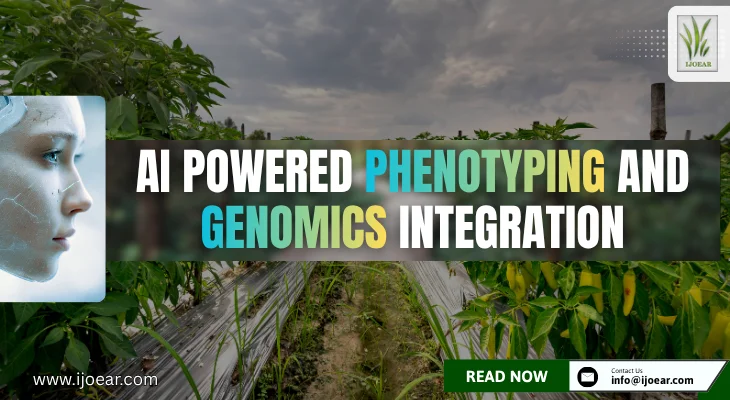
AI-powered phenotyping and genomics integration is reshaping agriculture, livestock science, and healthcare. By merging high-throughput phenotyping, genomics, multi-omics data, and AI modeling, researchers can accurately link genotype to phenotype, accelerate crop breeding, improve livestock selection, and enable precision diagnostics. This shift marks a transition from observational science to predictive, data-driven innovation.
Read More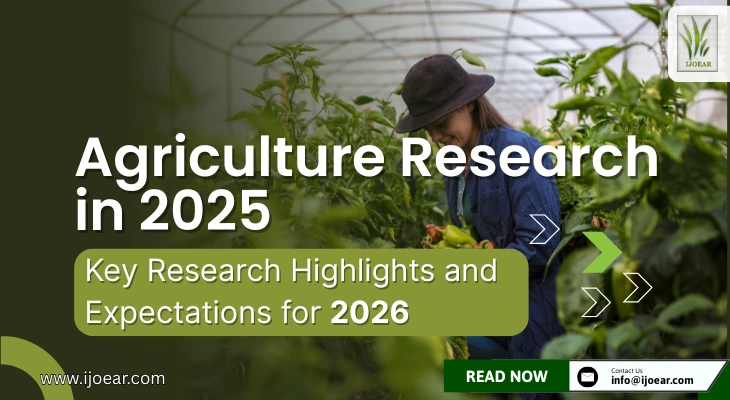
Agriculture in 2025 marked a paradigm shift from yield maximization to sustainability, precision, and resilience. This review explores breakthroughs in CRISPR, Digital Twins, Agentic AI, robotics, and bioengineering that are reshaping climate-smart farming — and sets the stage for the transformative research directions of 2026.
Read More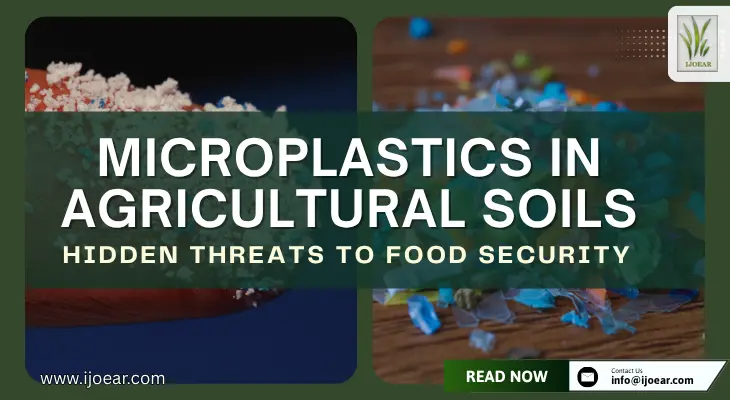
Microplastics have quietly infiltrated agricultural soils through plastics, fertilizers, and wastewater. This blog examines their environmental and food safety risks, their impact on soil ecosystems, and emerging eco-friendly alternatives like biodegradable films. It highlights the urgent need for research, policy, and sustainable practices in agriculture.
Read More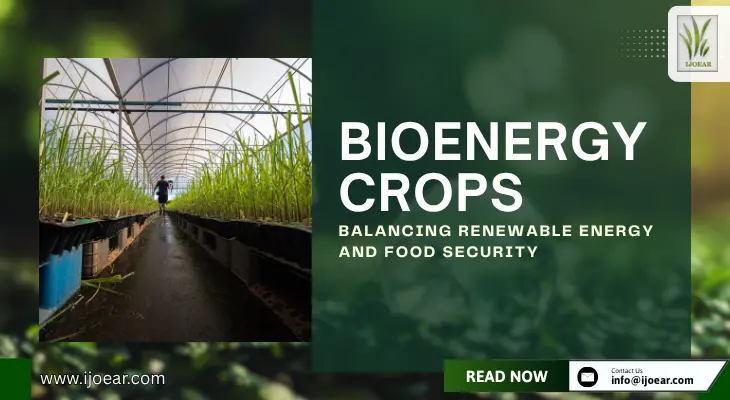
Bioenergy crops offer a sustainable solution to the world’s growing energy needs while addressing food security challenges. This article explores how smart agricultural practices, crop innovation, and policy support can create a balance between renewable energy production and food availability, along with the Ph.D. research scope in this emerging field.
Read More